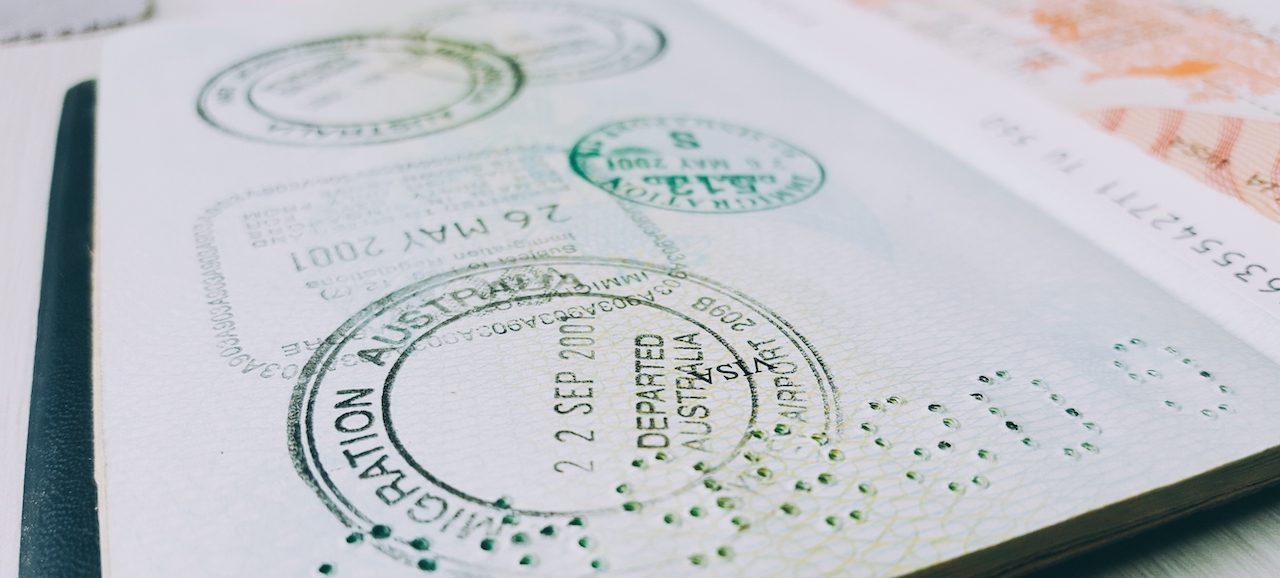Contents
So, let’s say you’ve finally made up your mind to move, rented an apartment in Lisbon, and are finalizing your enrollment in a local university or finding a job. What do you have to do to move to Lisbon?
How to move to Lisbon: a step-by-step guide for EU and non-EU citizens
This guide aims to help you through the process by providing basic information and useful links. So read on, and we’ll show you through the phases of moving to Lisbon!

All information EU citizens need to know to enter, and move to, Portugal
First and foremost you’ll need to enter the country. All you need to do if you are an EU citizen, or a national of an EEA country, Andorra or Switzerland, is book your transport and have valid personal identification with you. Nationals of the above countries do not need a visa to enter Portugal, nor do they need to report their presence after their arrival. Once you have entered Portugal, you may reside there for a maximum of 3 months, provided you have a valid passport or ID card.
Residence in Portugal for citizens of EU and EEA countries, Andorra and Switzerland
Citizens of EU and EEA countries, Andorra and Switzerland are allowed to remain in Portugal for over 3 months as long as they comply with one of the below requirements:
- They have legally recognized employment in the country or are self-employed;
- They have “sufficient resources” to support themselves and their family (if any), and have health insurance. The Portuguese government website defines “sufficient resources” as “resources of the citizen (pay and pensions which are not less than the level of income below which the Portuguese State may grant social rights and support to nationals, in the light of their circumstances and, where applicable, those of their family members.”;
- They are enrolled in a school or university or other “officially accredited private or public teaching establishment”, and have “sufficient resources” and health insurance.
The registration certificate for citizens of EU and EEA countries
Provided one of the above conditions exists, the above-listed nationals can live in Portugal for up to 5 years by obtaining a registration certificate, the document that formalizes one’s right of residence in the country. Applications must be filed at the Local Council of one’s place of residence. In Lisbon, the town hall you need to go to is located in Entrecampos (Praça do Município 38).
To apply you will need the following:
- Valid personal ID, i.e. a passport or ID Card.
- A written Affidavit stating your employment conditions (self-employed or employed by a company on Portuguese soil), or an affidavit stating that you hold sufficient funds to support yourself (and your family if applicable) and are covered by health insurance.
- The Portuguese registration certificate is valid for five years from the date of issue.

Registration certificates for students that are citizens of EU and EEA countries, Andorra and Switzerland
A student who wishes to attend a study program on Portuguese soil is required to apply for a registration certificate by presenting An Affidavit. This document states that he/she is enrolled in an “officially recognized school and that he/she has sufficient funds to support him/herself and has health insurance.
You can double-check the above and get more detailed information on the official Portugal government website, or contact the SEF (Portuguese Immigration and Borders Authority) Contact Center:
Tel: (+351) 217 115 000, at working days from 8h to 20h
Tel: (+351) 965 903 700, at working days from 8h to 20h
E-mail: gricrp.cc@sef.pt
All non-EU/non-EEA citizens need to know to enter, and move to, Portugal
Non-EU/non-EEA nationals who choose to move to Portugal will need a Visa to enter the country and are then required to apply for a residence permit. As Visa applications are concerned, you can check what you need to do by contacting the Portuguese embassy or consulate in your country of origin.
The residence permit, also called “residency Visa”, is granted upon application by the SEF, the Portuguese Immigration, and Borders Authority. Once obtained, it is valid for 1 year and may be renewed for 2-year periods after that.
Basic paperwork
To present a Visa or residency application you will need:
- Passport or valid ID;
- Two passport photos;
- Documents stating you have health insurance;
- Documentation of your status via the criminal records of your country of origin;
- Document stating where you are accommodated, and on what terms An affidavit stating you can support yourself (and family, if applicable) for the time of your stay.
These are the documents you will need to present, but laws and regulations might change and be adjusted, so make sure you check the official SEF website for full up-to-date info and instructions.
Students citizens of non-EU/non-EEA countries
Student residence permits are issued for those attending classes/courses and programs that last 1 year or longer. That lasts longer than a year at all educational levels from secondary school upwards. Visit the SEF “Studying in Portugal” page for detailed information on what documents you need to present depending on your nationality and the study program you plan to attend.
Portuguese tax number (NIF)
The first thing you have to do once your Portuguese residency status is in place is get a NIF, i.e. the local personal tax identification number. You’ll need this to do a pile of things, from opening a bank account to renting an apartment in Lisbon, to getting a mobile phone contract. The most straightforward way to get your NIF is by visiting the local Loja do Cidadão.
